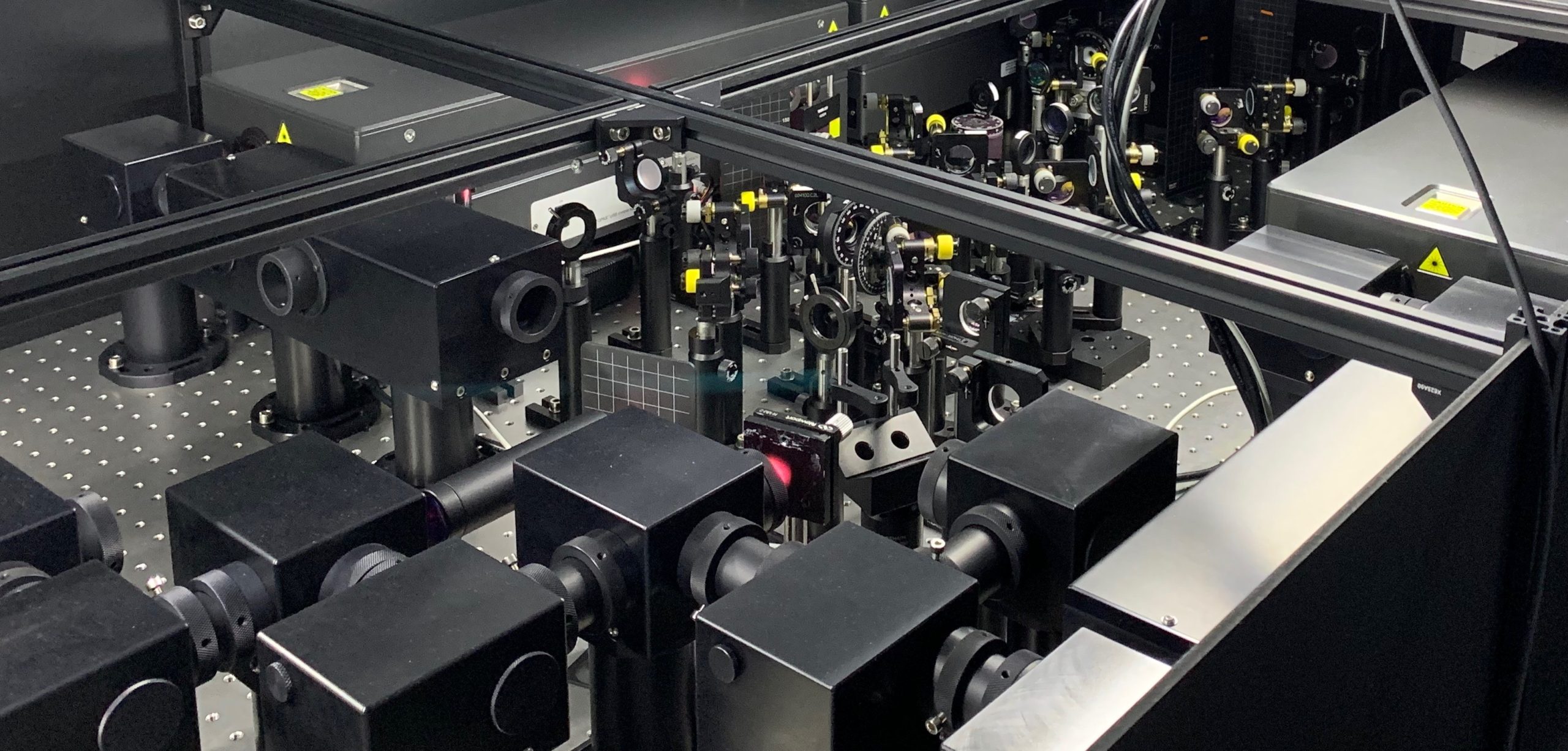Three researchers from Aarhus University will be upgrading their laboratories with new high-technology equipment thanks to Novo Nordisk Foundation grants totalling DKK 31 million. This will enable the researchers to boost their research within proteins, nanoparticles and biological molecules.
Tobias Weidner, Associate Professor, Department of Chemistry, is looking forward to upgrading his laboratory with an extremely powerful laser that can generate laser pulses at durations between a quadrillionth and a trillionth of a second. The new laser will enable him to build a spectrometer that can study the surface chemistry of nanoparticles in great detail.
Nanoparticle research in Denmark is already well positioned among the international leaders in the field, and the new laser will help to improve Denmark’s standing.
“Studying the surface chemistry of nanoparticles is essential in chemistry, the pharmaceutical industry and atmospheric chemistry. The reason is because the surface always interacts with the environment. Our equipment will be one of the first installations of its type in the world and the first in Denmark. This will enable researchers from Aarhus University and Danish researchers in general to have direct experimental access to the surface chemistry of nanoparticles,” explains Tobias Weidner.
New technology provides better insight into proteins
Jan Johannes Enghild, Professor, Department of Molecular Biology and Genetics, will also be upgrading his laboratory’s research capabilities. A Foundation grant of DKK 15 million will enable him to pursue his vision of establishing a state-of-the-art platform within biological mass spectrometry. The platform will help to underpin the basic and clinical sciences at the University in all research fields that need to study one protein at a time.
“In recent years, advances in mass spectrometry have revolutionized protein analysis and have made identifying, characterizing and quantifying proteins easier. Today, quantitative proteome analysis has become a fundamental tool in generating biological hypotheses, characterizing protein–protein interaction networks, analysing signal pathways, diagnosing infectious diseases and discovering biomarkers,” says Jan Johannes Enghild.
He explains that increasing the current mass spectrometry capacity at the University will enable a wider group of researchers to access expertise, because the demand for analysing samples exceeds the capacity of the equipment currently available.
More powerful computers can help researchers to understand disease
Denmark’s current facilities in this field target a wide spectrum of users and can simulate everything from the trajectory of galaxies to biological sequence analysis. However, research on the fringes of human knowledge requires more specialized tools, which Birgit Schiøtt and her co-applicants from the University of Southern Denmark, the University of Copenhagen and the Technical University of Denmark look forward to incorporating in their research in the form of a graphics processing unit (GPU) cluster computer.
“A main goal within research in biology, biomedicine and biotechnology is understanding the function of biological macromolecules at the atomic level. This type of information can be used to understand how diseases develop, how we can prevent them and how various technological applications can improve enzymes. Computer models play a key role because they can elucidate the link between macroscopic experiments and the atomic and molecular levels,” says Birgit Schiøtt.
The recent advances in computer technology have enabled very rapid and more precise investigations of biological molecules to be conducted. Danish researchers have only had limited access to the type of powerful computer that will now be installed at Aarhus University.
The Novo Nordisk Foundation has awarded grants totalling DKK 75 million to purchase advanced laboratory equipment. In addition to the grants to Aarhus University, the Foundation has also awarded grants to researchers at the University of Copenhagen and the University of Southern Denmark. Read more here.
All the grants are conditional on the research infrastructure being made widely accessible to researchers from both universities and industry.
Further information
Christian Mostrup Scheel, Senior Press Officer, phone: +45 3067 4805, [email protected]








